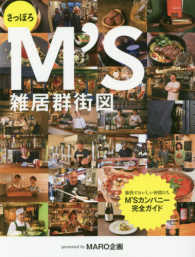Full Description
Lead workshops to help teachers connect best inclusive practices with standards!
Based on the best-selling book More Inclusion Strategies That Work! this facilitator's guide offers techniques for maximizing the strengths of all students in inclusive classrooms while meeting curriculum standards for all learners. Staff developers and workshop leaders will find specific tools to facilitate book study groups, seminars, and professional development events that increase teachers' skills in using inclusion strategies on a daily basis to instruct students at differing cognitive, sensory, physical, behavioral, emotional, and social levels. This easy-to-use guidebook offers step-by-step instructions for leading focused discussions on:
Applying inclusive strategies across the curriculum
Using assessments that are sensitive to differences in students' abilities
Varying the complexity and pace of lessons while achieving learning objectives
Maintaining sound educational principles
The chapter-by-chapter study guide features:
Workshop activities
Discussion questions
Suggestions for practical applications
Chapter summaries
Handouts and overheads
Resources for extending learning
Sample agendas for half-day, one-day, and two-day workshops
A workshop evaluation form
The Facilitator's Guide to More Inclusion Strategies That Work! is ideal for staff developers or anyone leading professional training for groups of any size—pairs, small workshops, or large seminars.
Contents
About the Author
Introduction
Preface
Chapter-by-Chapter Study Guide: Facilitator's Guide to More Inclusion Strategies That Work! Aligning Student Strengths With Standards by Toby J. Karten
Part I. Fundamentals of Honoring Potentials and Strengths of Students and Teachers
Chapter 1. Concentrating on Students' Strengths and Curriculum Standards
Chapter 2. Understanding Assessments and Curriculum Standards
Chapter 3. How Students Learn: Brain Basics
Chapter 4. How Teachers Teach: Good Practices for All
Part II. Standards-Based Inclusion Strategies That Work
Chapter 5. Standards-Based Reading Objectives
Chapter 6. Standards-Based Writing, Listening, and Speaking Objectives
Chapter 7. Standards-Based Math Objectives
Chapter 8. Standards-Based Science and Technology Objectives
Chapter 9. Standards-Based Social Studies Objectives
Chapter 10. Standards-Based Art, Dance, Theater, and Music Objectives
Chapter 11. Standards-Based Health/Physical Education Objectives
Chapter 12. Standards-Based Career Education and Life Skills Objectives
Chapter 13. Standards-Based Social/Behavioral/Emotional Objectives
Part III. Application of Strengths and Standards to Inclusive Environments
Chapter 14. Standards-Based Interdisciplinary/Cross-Curricular Lessons
Chapter 15. Attaining Inclusion
Chapter 16. Rewards for All
Handouts
Handout 1. A-Z Inclusive Assessment Rubric
Handout 2. Smart Chart
Handout 3. Looking Back to Move Ahead
Handout 4. Strategies People Search
Handout 5. Problem Solving: Inclusive Strategies
Handout 6. The Goal of Special Education
Handout 7. Science Levels and Accommodations for All Students Planner
Handout 8. Lesson Plan
Handout 9. I Can Do This, Too!
Handout 10. Neighborhood Connections and Objectives
Handout 11. Working Backward
Handout 12. How Much Do You Remember?
Handout 13. Roundtable Discussion
Overheads
Overhead 1. Connecting to Inclusion
Overhead 2. Compass Rose
Overhead 3. Interdisciplinary Approach
Sample Workshop Agendas
Half-Day Workshop Agenda
One-Day Workshop Agenda
Two-Day Workshop Agenda
Workshop Evaluation Form








